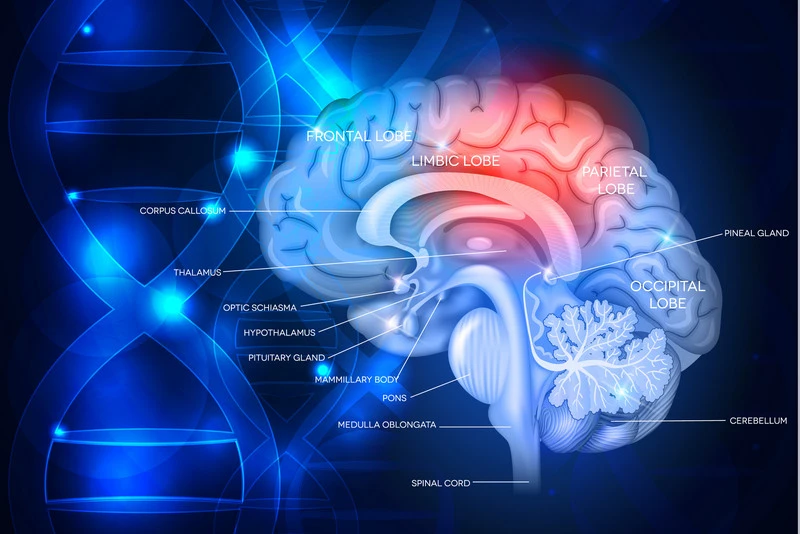This article will evaluate the effectiveness of TMS therapy in managing symptoms of Asperger’s Syndrome and provide insights into its potential benefits and limitations.
Introduction
Asperger’s syndrome is a developmental disorder characterized by social difficulties, repetitive behaviors, and restricted interests. This article will explore the potential benefits and limitations of using Transcranial Magnetic Stimulation (TMS) as a treatment option.
What is TMS?
Transcranial Magnetic Stimulation (TMS) is a technology that is a safe alternative to traditional treatments like electroshock therapy or medications. With no side effects, surgery, anesthesia, or radiation, the procedure is safe and effective.
TMS can be used to treat several conditions, reduce symptoms, and help those who are resistant to medication. All of this is done in short sessions with a technician in the room, monitoring the intensity of the magnetic pulses.
TMS has been approved by the FDA since 2008 and approved by some insurance providers since 2015. Several studies have confirmed the efficacy of TMS for different mental health conditions, and millions of patients around the world have received treatment at hospitals, clinics, and elsewhere.
Magnetic Stimulation (TMS) therapy for Asperger’s Syndrome
With modern TMS treatment for Aspergers, clients get the newest technology, which means better results.
Older models of TMS, like rTMS, used machines with coils on either side of the brain. This, or the electrode options, meant that targeting regions of the brain was specific and somewhat limited. Today, newer technology, Brainsway Ltd, is uniquely poised to help improve recovery thanks to a three-dimensional helmet design. dTMS, or Deep TMS, uses a helmet placed on top of the head as opposed to smaller electrical nodes. This larger helmet design means a broader surface area is stimulated, which means crucial deep brain regions critical to mental and physical health can be reached.
A 2019 study from the Journal of Psychiatric Research found that Deep TMS offers better response rates for the treatment of certain conditions compared to traditional rTMS. For that reason, Brainsway’s Deep TMS system is currently the only system cleared by the FDA for treatment.

Potential Benefits of TMS Therapy for Asperger’s Syndrome
Asperger’s syndrome is a form of Autism Spectrum Disorder that can make it challenging for young people to relate to others socially. It also creates problems with emotional regulation and results in repetitive behavior patterns. Some common symptoms can include:
- Having problems with social interactions or casual social cues during conversation
- Having problems understanding emotions and not using facial expressions
- Having problems understanding nonverbal communication, especially body language or gestures
- Only engaging in conversations that revolve around them or a highly specific topic of interest that is usually abnormal
- Intense obsessions with specific subjects, usually one or two
- Repetitive behaviors and repeated routines
- Being easily upset at any change in a repeated routine
- Clumsy and uncoordinated movements because of poor motor control, like problems with writing
- Problems with emotional regulation, which often lead to tantrums or verbal and behavioral outbursts
- Not being able to understand the perspectives or feelings of others
TMS has been shown to help with all of these.
Improved Social Interaction
Studies have confirmed that deep rTMS, when applied to the bilateral dorsomedial prefrontal cortex, improves social interaction skills, making it easier for those with Asperger’s Syndrome to relate to social situations.
Other Studies have reviewed the efficacy of brain stimulation over the Broca’s area in individuals with Asperger syndrome. It has found that the language regions of the brain can be successfully targeted, encouraging improvements in naming skills while boosting language neural network dynamics which can help individuals with Asperger’s Syndrome remember names and improve social interactions.
Enhanced Emotional Regulation
Helping to better motivate enhanced emotional regulation, TMS treatment for Asperger’s has been shown to modulate motor corticospinal excitability, related to genetic abnormalities linked to the condition. The effects tend to last significantly longer for those with Asperger syndrome compared to other autism spectrum disorders and can provide relief from symptoms for several months.
Reduced Repetitive Behaviors
When Asperger’s syndrome, many people experience impairment in their motor functions and this leads to repetitive behaviors. Some studies have explored the potential benefit of TMS therapy for Asperger syndrome particularly as it relates to these behaviors. an analysis has confirmed that the left postcentral gyrus, when targeted with TMS can overcome the cause of motor impairments which have namely to do with structural alterations.
By overcoming these structural alterations and changing the density of gray matter in the area, individuals have better control over motor functions and improvements in manual dexterity.

Potential Limitations of TMS Therapy for Asperger’s Syndrome
With TMS for Asperger’s, there are some potential limitations despite the clinical studies.
Limited Evidence of Efficacy
One of the main limitations of TMS therapy for Asperger’s has to do with limited evidence of the efficacy. The FDA has approved the use of TMS for treating mental health conditions like OCD, depression, and anxiety, but there are still limited clinical trials and research studies to confirm the efficacy of TMS for Asperger’s, particularly how to optimize its effectiveness and design unique treatment programs.
This is not to say that individuals will not experience changes to things like repetitive behaviors and social interactions with TMS and Asperger’s treatment, but it might be something that is simply included as part of a treatment plan rather than the central component of a treatment plan until such time as more clinical evidence is available.
Variability in Individual Responses
With TMS treatment for Asperger’s, there is some variability in individual responses. Given the different symptoms that an individual might struggle with, the outcome of TMS Asperger’s treatment could be different from one patient to another.
Potential Side Effects
A much smaller potential limitation for TMS therapy Asperger’s treatment plans is the risk of side effects. Most people do not experience any side effects and if they do they are very mild, including tingling or headaches at the site of the helmet or electrodes which tend to go away after the first few treatments.
TMS for Asperger’s: Summing Up
There is great potential for TMS therapy for Asperger’s syndrome. There are current limitations to TMS therapy, as it is not yet at the same level of FDA approval as TMS is for other conditions. If you are looking for TMS Asperger’s treatment, be aware of continued research that can help optimize its effectiveness and improve your symptoms, and speak with your healthcare provider about TMS treatment for Asperger’s, based on your situation.
